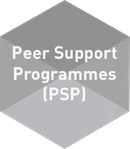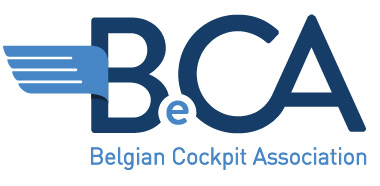Peer Support Programmes (PSP)
 | What? | As any other person, pilots may suffer from stress, burn-out, fatigue, addictions or mental illness. |
Why? | Pilots should only work when they are fit-to-fly. Due to the high impact of revoking a medical certificate (no work, no income) and the fear of not regaining it when suspended, pilots are reluctant to confess these issues. | |
How? | BeCA wants to be a key stakeholder in the creation of (a national) Peer/Pilot Support Program (PSP). A safe haven for pilots with psychological issues focused on rehabilitation and getting healthy people back in the air asap. |
Germanwings 9525
After the horrific events of 24 March 2015, when FO Andreas Lubitz killed 150 persons by deliberately crashing a Germanwings A320 into the French Alps, a quickly assembled EASA Task Force came up with 5 recommendations:
- 4-eye cockpit rule
- psychological assessment at first employment and during re-current medical checks
- the setup of an international medical database for aircrew
- random testing for substance abuse
- Peer Support or Pilot Support Programmes (PSP)
The 4-eye cockpit rule – which was almost immediately adopted by the majority of the EU airlines – meant that no pilot should be left alone in the cockpit during flight. In reality, this was mere window-dressing, because apart from the fact that a pilot doesn’t have to wait until he reaches cruise altitude to crash a plane (Why not do it right after take-off?), the new rule introduced a number of new hazards. From a security standpoint, it was now easier to train a terrorist cabin crew member or wait until the pilot came out of the cockpit – as this was mostly announced by a call to the cabin. But more important, the new rule caused dehydration among flight crews who didn’t want to disturb their colleagues in the cabin during their service to visit the restrooms (and therefore drank less).
A psychological assessment during initial selection was already a common element of most recruitment procedures, but making it mandatory seems a good idea. The same goes for repeated assessments during the mandatory medical checks. The only prerequisite is that Aeromedical Examiners (AMEs) receive proper training and guidance on how to perform such an assessment. After all, we don’t want perfectly sane pilots to be grounded or problematic cases to pass.
The rationale behind the international medical database is to prevent aspiring pilots to go ‘shopping’ for a psychological pass in EU member states if they fail an assessment in one state. Currently, due to the strict EU privacy and data protection legislation, this proves a difficult (if not impossible) idea.
Random testing (alcohol and drugs) did not have to do anything with the Germanwings tragedy. Nevertheless, the UK and Germany were quick to put it on the agenda.
And then last but certainly not least: peer support. The idea of colleagues helping each other to face their mental health issues or addiction problems. A safe harbour with the aim of getting people back ‘on the line’ as soon as possible. Supported by accredited aviation psychologists, with direct access to rehabilitation facilities, backed by the authorities and funded by the airlines.
EPPSI
In 2017, the European Association for Aviation Psychology (EAAP); European Society of Aerospace Medicine (ESAM); European Cockpit Association (ECA); and Stiftung Mayday (Mayday Foundation) founded a non-profit body, called the European Pilot Peer Support Initiative (EPPSI). Its purpose is to:
- facilitate communication between stakeholders and interested parties engaged or planning to get engaged in Peer Support Programmes (PSP);
- exchange of best practices in running and setting up PSP in aviation;
- promote best practices, advice and information on PSP and to thereby further optimize flight crew physical and mental fitness during a lifelong career.
So far, EPPSI has organised two workshops (2017 and 2018) which provided a forum for all stakeholders to discuss the implementation, pitfalls and early successes with peer support. More information can be found on the EPPSI website: http://eppsi.eu
Regulation
As of 14 August 2020 aircraft operators must “enable, facilitate and ensure access to a proactive and non-punitive support programme that will assist and support flight crew in recognising, coping with, and overcoming any problem which might negatively affect their ability to safely exercise the privileges of their license.” (CAT.GEN.MPA.215 EU 2018/1042)
What does BeCA do?
BeCA actively promotes the implementation of a pragmatic PSP. We want to avoid that this new regulation will become a tick in the box exercise. Instead, we seek active participation from stakeholders BCAA, AMEs, aviation psychologists, airlines and sister pilot associations (e.g. USALPA) in order to facilitate a setup which can provide real help to pilots facing difficult times. Peer support is according to BeCA (and ECA) the most effective tool to break the taboo and overcome mental health issues. This is truly for pilots by pilots!
Article Library
![]()

